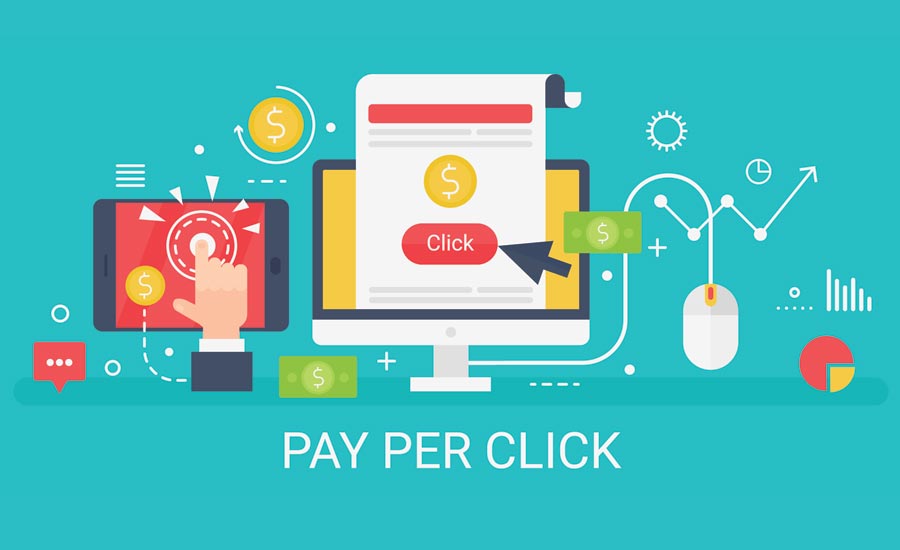 Strategies, online campaigns, and Google tools are names that have already become synonymous with marketing in the digital world. Virtually everyone who hears this term already knows what is being talked about at that time. But it is not always so, in a world where changes happen more and more quickly, it is quite normal that you are surprised to hear some terms for the first time. Pay Per Click is certainly one of them and it generates doubts in almost everyone. Not only by name, but by its functionality and the business model it proposes.
Strategies, online campaigns, and Google tools are names that have already become synonymous with marketing in the digital world. Virtually everyone who hears this term already knows what is being talked about at that time. But it is not always so, in a world where changes happen more and more quickly, it is quite normal that you are surprised to hear some terms for the first time. Pay Per Click is certainly one of them and it generates doubts in almost everyone. Not only by name, but by its functionality and the business model it proposes.
But since the term and the business model generate so many doubts, we decided to make a short list clarifying everything about the subject. So take the time to understand more about what Pay Per Click is and how it works.
What is Pay Per Click?
First, we need to start with the definition of what Pay Per Click is and then understand how it works. Well, Pay Per Click is basically a way of using ads from search engines like Google and Bing to generate clicks on your site, instead of “earning” those clicks organically. Do you know those sponsored ads that you see at the top of the Google search results page, usually marked with a yellow band? This is advertising done through the Pay Per Click business model. At Google, the tool that provides this is Google Adwords.
How does Pay Per Click work?
You advertise your site on Google. Every time your ad is clicked and a visitor is redirected to your site, you pay a fee to the search engine. Hence the name Pay Per Click (pay per click). When your PPC campaign is well planned and running smoothly, this fee will pay off a lot, because the visit is worth more to your business than what you pay for. For example, if you pay $0.5 for a click, but the click results in a $20 sale then using Pay Per Click is more than worthwhile for your company.
What are the advantages?
In addition to being able to compensate for sales, this business model has other features that can help you grow. Nowadays the internet world requires a series of campaigns and strategies that you must use to always be active and in contact with your customers, PPC is certainly a great help in this regard. And thinking on a deeper level Pay Per Click is beneficial for everyone.
Who is researching for?
Paid ads on search engines are the most clicked type of digital advertising in the world. This means that people don’t really care about advertising, as long as the products and services advertised really meet the needs of those looking for them. And because we use search engines when looking for products and services, the results, including the ads, are generally highly relevant to what we are looking for. In addition, Google has developed an excellent formula to ensure that PPC ads meet the needs of its users.
Whom does it advertise to?
Advertisers have the opportunity to be in a place where they can put their message in front of an audience that is actively and specifically looking for their product. As “searchers” reveal their intention through what they search for on the sites, advertisers are able to measure the quality of traffic that results from clicks from the search engine.
And if you have good products or eye-catching content, the number of people who will stay with you is sure to grow significantly after such a campaign. That is why other tools are also important and even if you understand what Pay Per Click is and how it works, you will still need something more to maintain stability in your online business.

Does Pay Per Click work for me?
And that is why you must think: Is PPC for my case? Think about what goes into a Google Adwords campaign; some knowledge of SEO can be extremely useful for you. In addition, understanding how to market your business in a digital way will also help when creating a campaign on one of the tools of the various search engines that exist today. In case you are not good enough to put all these together, PPC management services can be the answer sometimes. They can help you set a campaign from head to toes, professionally.
And of course, like everything else in the world, Pay Per Click also has its disadvantages, especially in some specific cases. For example, if you don’t know how to create a campaign with consistency and end up spending a lot and have no return. Such cases can happen even with the best deals, it all depends on how you manage your campaigns. In addition, you should be aware of the numbers that Google or any other type of service generates. They indicate where the clicks came from and what are the most searched terms to reach your business. Without this information, it is quite possible that you may have a campaign that does not work.
Keeping an eye on all the topics covered here is a great way to start thinking about whether a Pay Per Click campaign is for your specific business and how to make a campaign like this payoff, what strategies to use and how to know if it is generating results or do not. Thus, little by little, you will also become familiar with Pay Per Click, or PPC.
Now you can understand what the Pay Per Click model is and how it works, right? Not everything is easy to understand at first, but over time you will realize that it is just a matter of getting used to terms and small rules that can make a difference when managing your online business. So study, research more and more about what can improve your website, blog or online store and put it all into practice to get the results you want so much.




